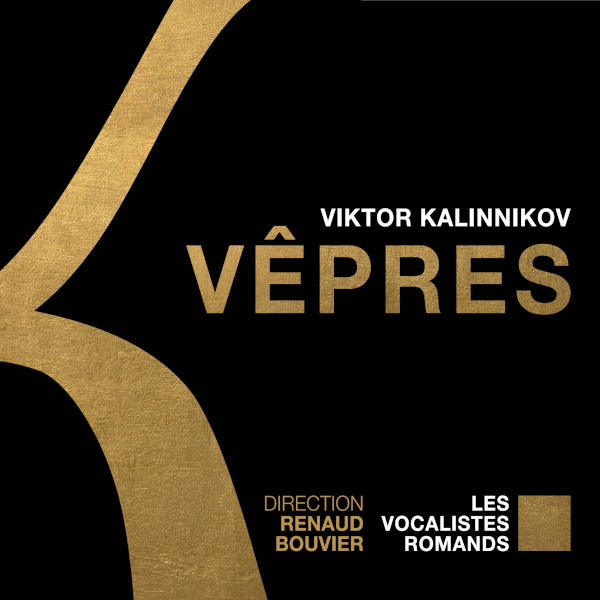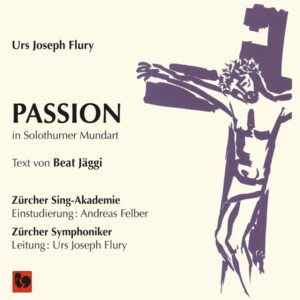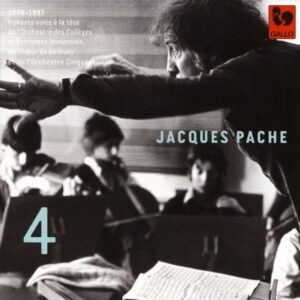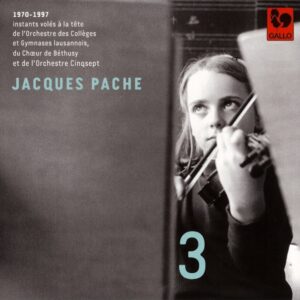Extraits / Excerpts
Kalinnikov: Vêpres (Vespers) - Schnittke: Trois Hymnes sacrés (Three Sacred Hymns) - Tchaikovsky: Hymne des cherubins, Op. 41 (Cherubic Hymn, Op. 41) - Rachmaninoff: Hymne des cherubins, Op. 31 (Cherubic Hymn, Op. 31) - Les Vocalistes Romands - Renaud Bouvier
Viktor KALINNIKOV: Vêpres (Vespers): I. Bénis le Seigneur, ô mon âme (Bless the Lord, O My Soul) – II. Heureux l’homme (Blessed Is the Man) – III. Lumière joyeuse (Gladsome Light) – IV. Maintenant laisse ton serviteur s’en aller (Lord, Now Lettest Thou) – V. Vierge, Mère de Dieu (Rejoice, O Virgin) – VI. Louez le nom du Seigneur (Praise the Name of the Lord) – VII. Depuis ma jeunesse (From My Youth) – VIII. Ayant vu la résurrection du Christ (Having Beheld the Resurrection of Christ) – IX. Mon âme magnifie le Seigneur (My Soul Magnifies the Lord) – Alfred SCHNITTKE: Trois Hymnes sacrés (Three Sacred Hymns): I. Réjouis-toi, Vierge, Mère de Dieu (Hail Mary, Full of Grace) – II. Seigneur Jésus Christ, Fils de Dieu, aie pitié de moi ! (Lord Jesus) – III. Notre Père (Our Father) – Pyotr Ilyich TCHAIKOVSKY: Liturgy of St. John Chrysostom, Op. 41: VI. Hymne des cherubins (Cherubic Hymn) – Sergei RACHMANINOFF: Liturgy of St John Chrysostom, Op. 31: VIII. Hymne des cherubins (Cherubic Hymn) – Viktor KALINNIKOV: Hymne des cherubins, No. 2 (Cherubic Hymn No. 2).
Les Vocalistes Romands – Renaud Bouvier, Conductor.
www.vocalistes.ch
VIKTOR SERGEÏEVITCH KALINNIKOV
Trained at the Musical Dramatic Institute of the Moscow Philharmonic School, Viktor Sergeyevich KALINNIKOV (1870-1927) was active as a conductor of choirs and orchestras in various Moscow schools and musical theaters, as well as a professor at the Conservatory from 1922 until his death. He was the brother of the symphonist Vasily Kalinnikov (1866-1901). Viktor Kalinnikov belongs to that group of Russian composers (along with Chesnokov, Golovanov, Kastalski, Nikolski and Shvedov, among others) who, at the turn of the two centuries, dedicated themselves mainly to the sacred choral repertoire, considerably enriching the musical corpus of Orthodox liturgies.
During the first two decades of the 20th century, their activity was centered on the Moscow Synodal School and its famous men’s and boys’ choir, before the revolutionary authorities banned all music and religious events.
Kalinnikov’s health was fragile and he left a very small body of work: only 24 short sacred pieces. However, their rich vocal writing, at the service of the sacred liturgical text, their spiritual depth, their melodic invention (which does not take up the traditional melodies of the liturgy), their very elaborate harmony, always rich, sometimes even unexpected, attentive to creating the right climate for the expression of the text, make his works of great quality.
Unlike the great cycles of sacred music by Tchaikovsky, Gretchaninov or Rachmaninoff, which were written in one piece, the pieces that make up Kalinnikov’s “Vespers” were written in isolation, between the years 1914 and 1918, the years of the War and the Revolution. They are grouped in a collection in the traditional order of their appearance in the service. Had his health, the political situation, and the place of church music taken a different course, no doubt Kalinnikov would have completed the work with the still missing hymns: the Great Doxology and the Взбранной воеводе (O Victorious Queen).
- Categories
- Composers
- Interprets
- Booklet














